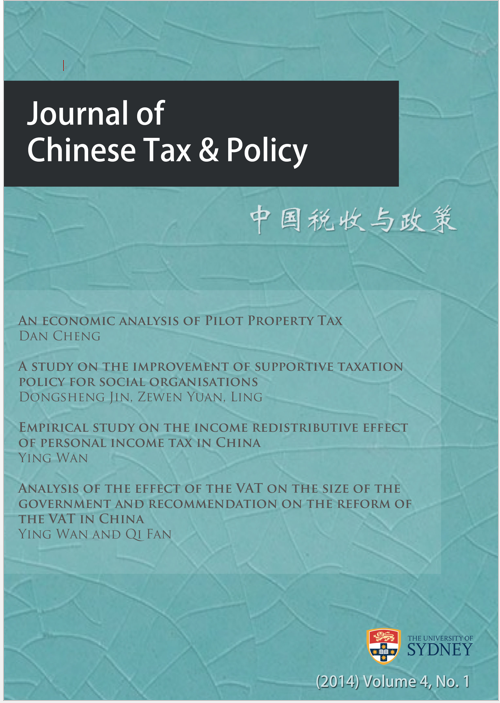THE COMING OF AGE OF ENTERPRISE TAXATION IN CHINA
Abstract
Abstract
This article commences with a brief historical overview of the taxation system in China and provides a context for the key elements relevant to foreign enterprises since the Open Door Policy. The unified taxation of domestic and foreign owned business enterprises recognises the maturity of China’s economy and the greater role that domestic enterprises are playing in the world economy and, consequently, the need to ensure competition is on a level footing. However, the primary concern of this article is to provide an analysis of the ‘principles based’ unified enterprise income tax regime that commenced operation on 1 January 2008 together with its implementing regulations. This analysis reinforces China’s integration of western tax concepts albeit in a much simplified manner than most economically developed regimes. However, the unified regime does pave the way for China to utilise the benefits of that unification to enable development of better wealth distribution throughout the nation and thereby enhance economic development.
This article also demonstrates that domestic businesses were at a disadvantage before this unification and that disadvantage led to behaviour that sought to circumvent the disadvantage by utilising the loopholes available between the Domestic and Foreign Enterprise tax rules. The article concludes that this reform is as much an attempt at ensuring competition is equal between domestic and foreign sectors of the Chinese economy as it is about dealing with tax avoidance. The introduction of specific and general anti-avoidance measures is evidence of this dual purpose. It is perhaps too early to judge the performance of this new regime, but once the grandfathering arrangements come to an end, the true impact of the unified Enterprise Income Tax Law will become apparent.

